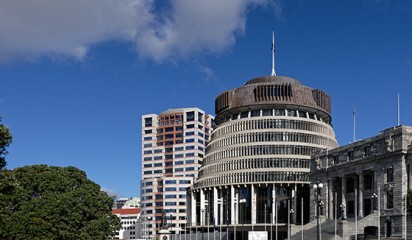With the core elements of the amended Trans-Pacific Partnership (TPP) agreement (now known as the Comprehensive and Progressive Agreement for Trans-Pacific Partnership (CPTPP)) agreed to, we can now more clearly see how the agreement will affect the intellectual property (IP) laws of New Zealand.
The withdrawal of the USA has meant that a smaller trade agreement has been concluded between New Zealand, Australia, Brunei Darussalam, Canada, Chile, Japan, Malaysia, Mexico, Peru, Singapore and Vietnam. One of the consequences of this is that some of the IP provisions have not been carried through. These provisions were likely being promoted by the USA, and have become some of the many that have been suspended indefinitely and will not be part of the agreement, which is expected to be signed in early March.
Our previous coverage of the evolving TPP negotiations (here and here) warned of changes to New Zealand’s wholesale pharmaceutical purchaser Pharmac, and to the patent system in New Zealand. However, the accounts given of the agreed CPTPP agreement show an agreement without these proposed changes.
New Zealand’s current laws, policies and settings providing a period of market protection to new medicines against competition from generic copies meet the standard required for the new CPTPP. There is no requirement to change any of these data or market protection settings.
With regard to patents, our existing domestic policies for patenting new uses of known products, as well as plants, will not be locked in by signing the CPTPP, which will allow New Zealand’s patent policy to react to the changing technological landscape. Similarly, New Zealand is not required to change its laws regarding extension of the term of a patent due to delays in the Intellectual Property Office of New Zealand’s examination process, or, for pharmaceuticals, Medsafe examination.
The term afforded to copyright will now remain the same in New Zealand, after the withdrawal of the 70 year term proposed by the United States. The copyright term for films and sound recordings (including recorded music) will continue to expire 50 years after the end of the calendar year in which they were made. The copyright term for books, screenplays, music, lyrics and artistic works expires 50 years after the end of the calendar year in which the author died. The retention of the 50 year copyright term will be disappointing for copyright owners in New Zealand, but is largely in line with the New Zealand Government’s purposes relating to copyright law. The Copyright Act 1994 is, however, due for a review in 2018, so further developments in this area may arise.
The CPTPP also removes the obligations to provide more extensive protection to technological protection measures, which act to ‘protect’ copyrighted works, as well as rights management information which identifies a copyright work, its owner, and the terms and conditions of the work. The rules for liability regarding internet services providers and copyright infringement also remain within New Zealand’s discretion, and we retain the flexibility to adjust these in future. These technological protection measures do not appear to affect the substantive rights of copyright owners, but may increase compliance costs for companies. These measures should also make it easier for both those wishing to avoid copyright infringement, and those seeking information on copyrighted works, by giving clear access to the information described above.
Other aspects of IP such as trade marks, designs, plant variety rights, and trade secrets do not appear to be affected by the CPTPP agreement, and given that these IP rights are protected by other international agreements we do not foresee this changing in the near future.







